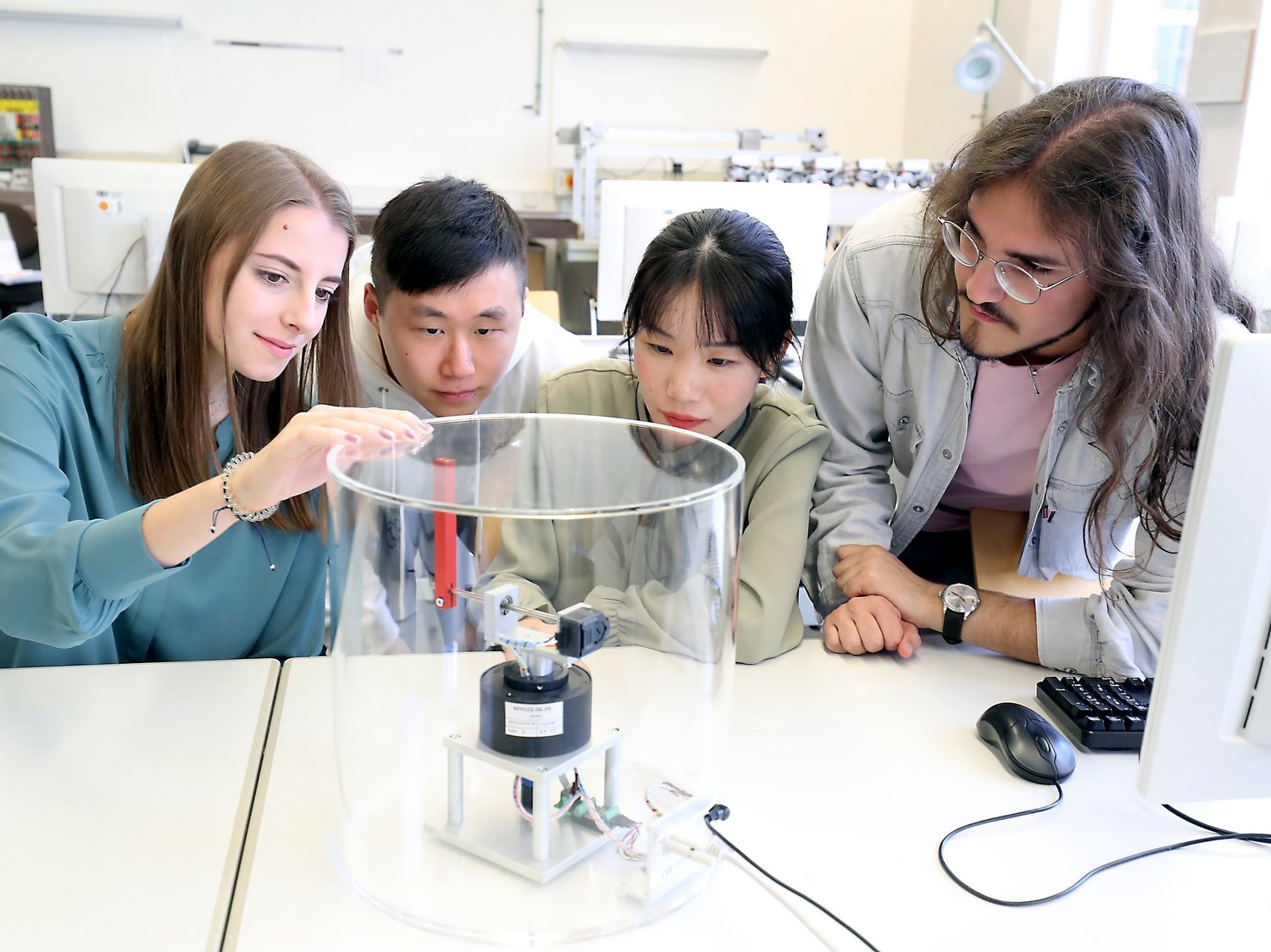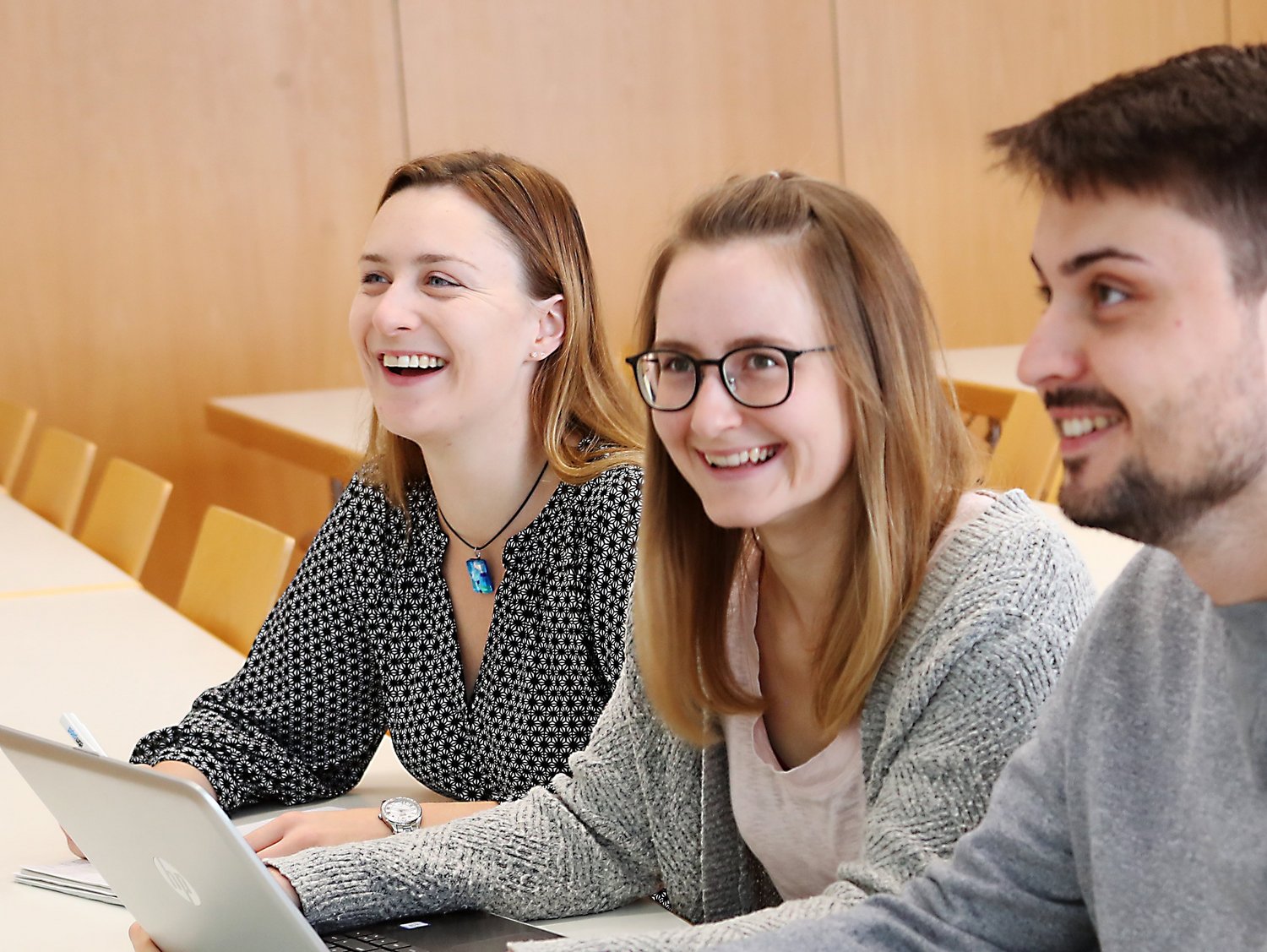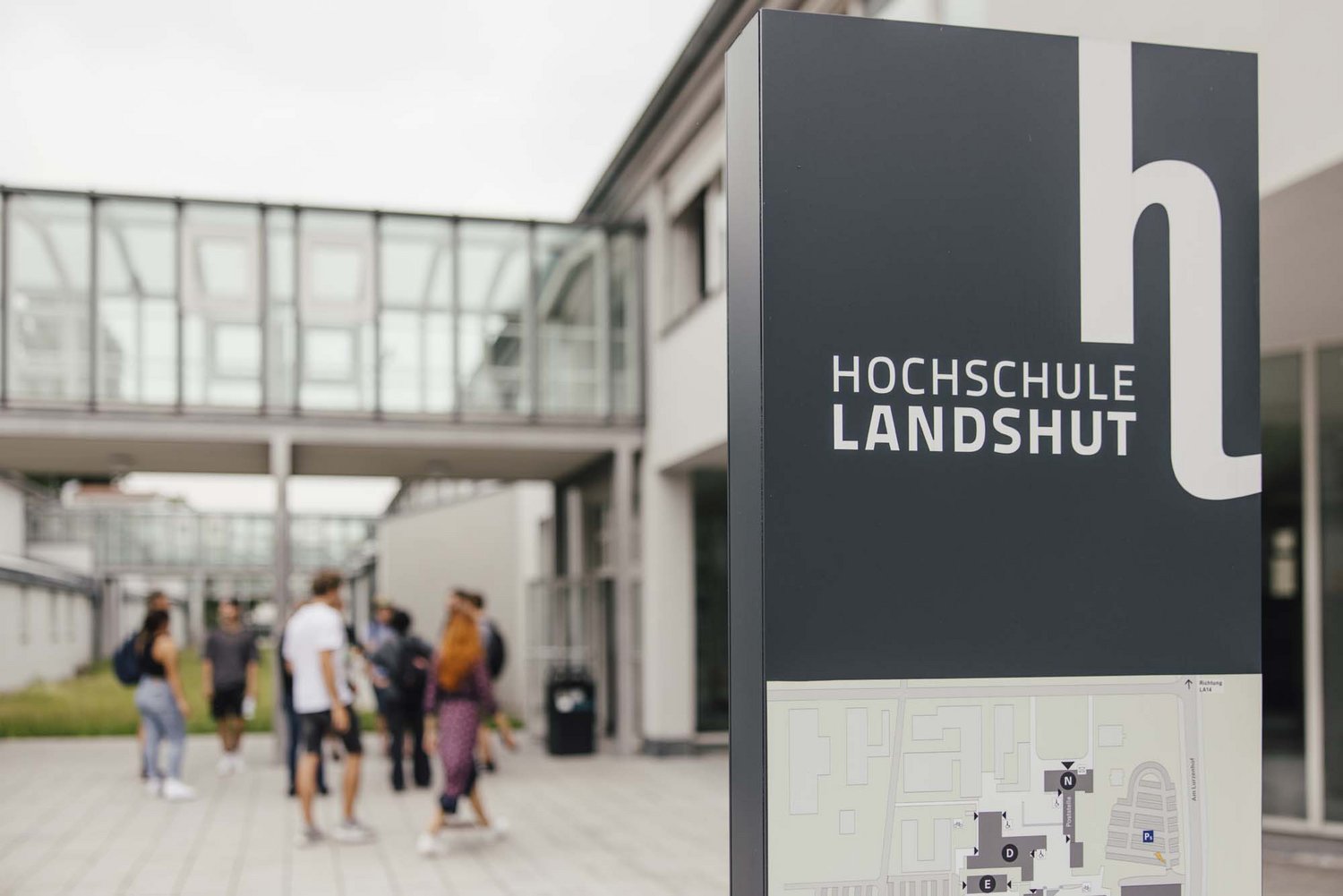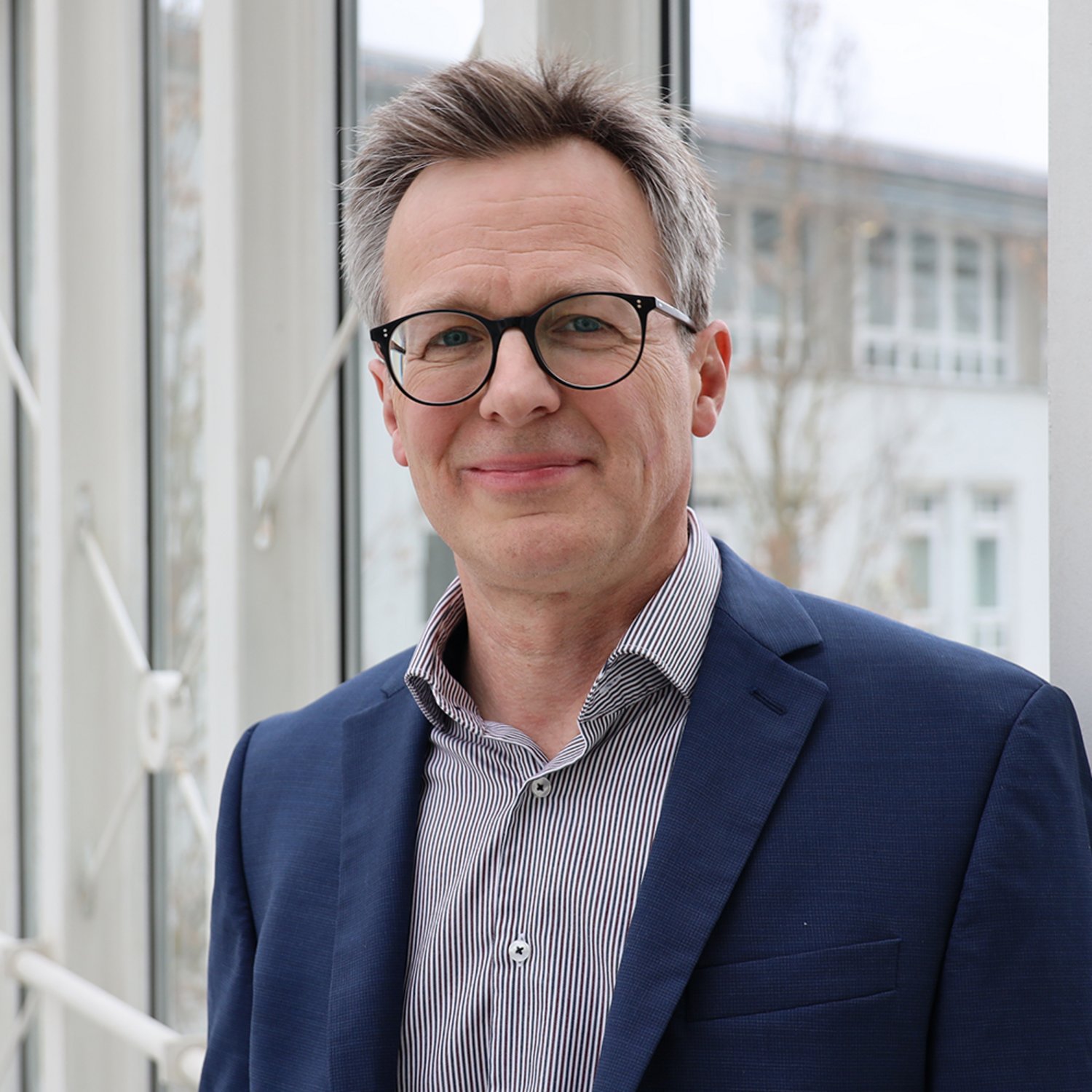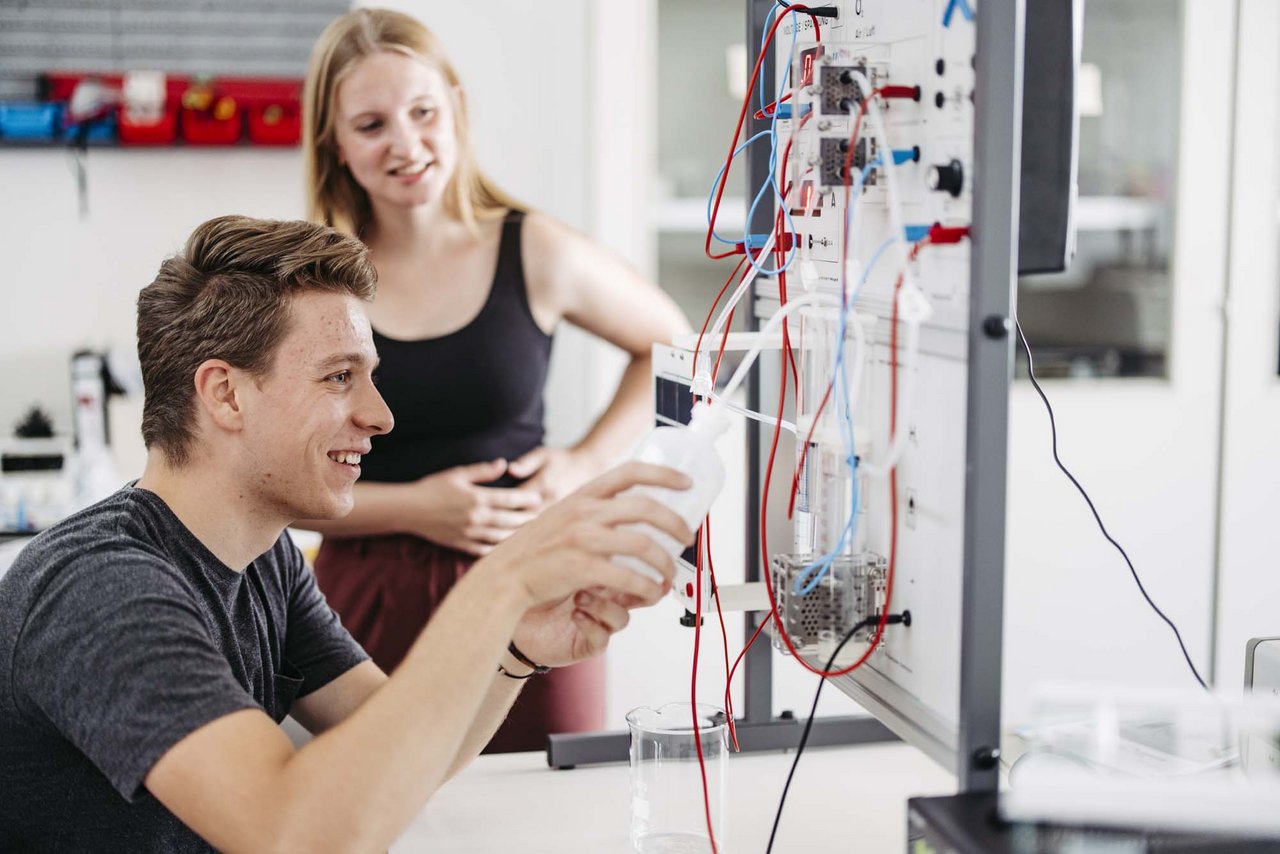
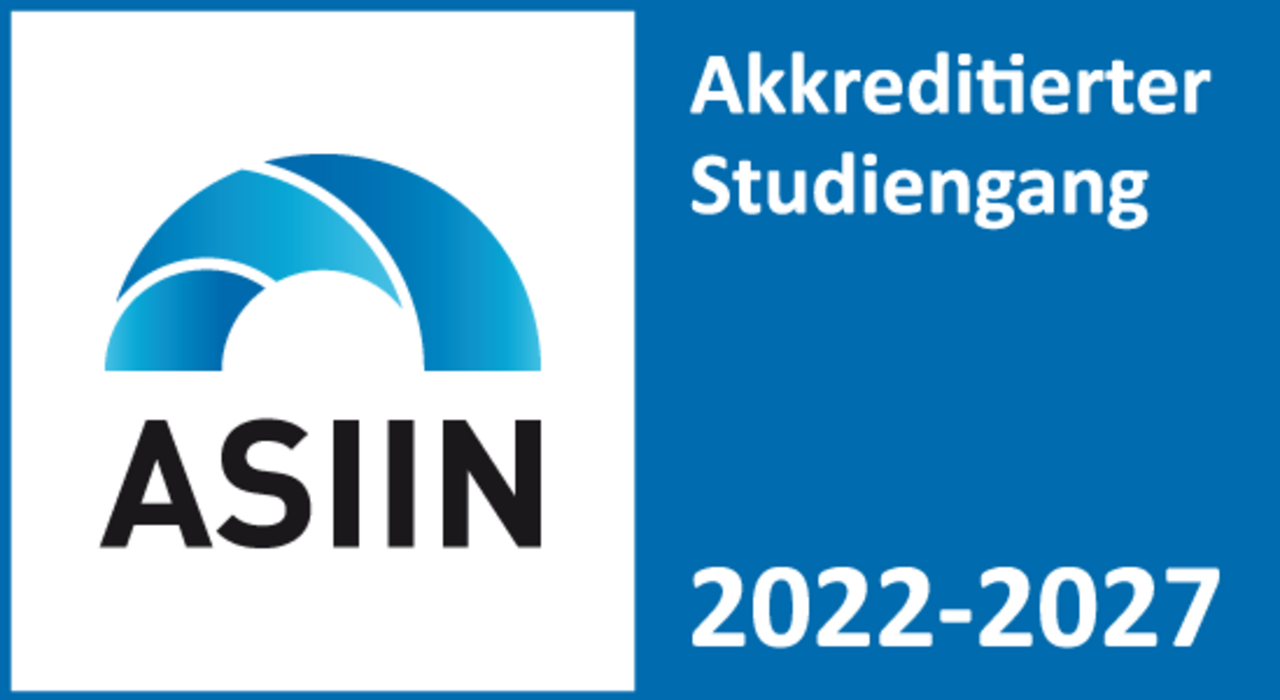
Accredited degree program
Engineering education
Bachelor of Engineering
Teacher training at vocational schools or a career in engineering: The Engineering Education degree programme combines an engineering degree (either in mechanical engineering or electrical engineering and information technology) with a basic education in education and social sciences. The Bachelor's degree B.Eng. opens up all career paths for students as engineers or as teachers at vocational schools.
| Start | Winter semester |
|---|---|
| Admission Criteria | Open admission (no numerus clausus) |
| Application period | 15.04.2025 - 15.09.2025 |
| Study format | Full time, with in-depth practical experience, Joint degree programme |
| Study cost | None (only semester fee) |
| Normal duration | 7 Semester |
| Language | German |
| ECTS | 210 |
| Accredited degree program | |
 | |
The study programme / profile
Future teacher at vocational schools or career in engineering - the Engineering Education degree programme offers both!
Are you enthusiastic about an engineering subject in the field of mechanical engineering or electrical engineering and information technology? Do you also enjoy explaining technical issues to other people? Are you thinking of becoming a teacher at a vocational school, but are not sure? Then the "Engineering Education" degree programme is just right for you.
Engineering Education combines either a degree in mechanical engineering or electrical engineering and information technology, which makes up the majority of the degree programme, with a basic education in education and social sciences. The "practical school studies" give you an early insight into the teaching profession so that you can better plan your future career path. A second STEM subject (either mathematics, computer science or physics) allows you to specialise with a view to working as a teacher.
The advantage of engineering education is that it is not necessary to decide on a career in teaching or engineering before completing the degree programme. The Bachelor's degree B. Eng. opens up all paths as an engineer to you, while at the same time you can seamlessly pursue a career as a teacher at vocational schools, both without any loss of time.
Contents and course of study
The Engineering Education degree programme consists of six theoretical semesters and one practical semester. The programme comprises three subject blocks: The vocational specialisation (metal technology or electrical engineering and information technology), the area of (vocational) education / social sciences and a teaching subject (either computer science, mathematics or physics).
Read moreProspects after graduation
After graduating with a degree in Engineering Education, there are many career opportunities open to you: you can qualify to teach at vocational schools and complete a Master's degree in Vocational Education at a university (e.g. the Technical University of Munich) followed by a traineeship. However, you also have the option of working in engineering or in the further education sector. Another option is a Master's programme in mechanical engineering or electrical engineering and information technology.
Read moreAdmission requirements for the Bachelor's degree course are the general or subject-specific higher education entrance qualification, the entrance qualification for universities of applied sciences or another school-leaving qualification recognised as equivalent by the Bavarian State Ministry of Science and the Arts. The Engineering Education degree programme, which is unique in Bavaria, opens up the path to a higher teaching position at vocational schools for prospective students with a technical college entrance qualification. Professionally qualified persons (e.g. master craftsmen/mistresses) can also apply for a place on the programme under certain conditions.
Read moreApplicants for the Engineering Education degree programme should above all have an interest in the natural sciences - especially computer science, mathematics or physics - and in education, as well as enjoy working with young people.
Before the start of the semester on 1 October, a bridging course in mathematics is always offered in September, which is also strongly recommended as basic preparation for the course and as an initial introduction.
Before registering for the preparatory service (Referendariat) after the Master's phase, you must provide evidence of a long-term, comprehensive work placement (currently 48 weeks, as of 28 January 2019) that is relevant to the chosen vocational specialisation. Information on this can be found on the homepage of the Bavarian State Ministry or from the respective contact persons. We strongly recommend that you complete as much of this as possible before the start of your studies or during the lecture-free period. (Relevant) vocational training can be recognised as a work placement. If the vocational training is not relevant, parts of it may be recognised (the same applies to civilian service or a voluntary social year).
The Bavarian State Ministry of Education and Cultural Affairs is responsible for this recognition. If you have any questions about this work placement, please get in touch with the following contact person at the State Ministry:
Mrs Sabine Parol
Phone: 089/2186-2301
Email: sabine.parol(at)stmuk.bayern.de
It is important to distinguish whether you are applying for a Bachelor's or Master's degree programme. There is also a difference as to whether the Bachelor's degree programme is admission-free or admission-restricted (with NC). Further information on the application and admission procedure can be found here.
The university determines the number of places to be allocated for individual degree programmes. From the applications received for places on degree programmes with restricted admission, the best students from various groups (Abitur, Fachabitur, master's degree, second degree, etc.) are admitted according to a ranking list until the number of places to be allocated is reached. The NC (Nurmerus Clausus, average grade for admission) is calculated each year from the average grade of the last university place awarded. Experience shows that the NC fluctuates considerably from year to year when there are only a few study places to be allocated and cannot be predicted in advance of admission. It is therefore not the grade point average required for admission that is specified in advance, but the number of study places to be allocated.
Depending on whether you have already studied something similar or the same degree programme elsewhere, you either apply for a higher semester or start a new degree programme in the first semester. If you apply for a higher semester, the creditable examination results in particular determine whether you can be admitted. More information here.
If you can prove that you have already acquired comparable skills - either through professional experience or as part of a previous degree programme - you can apply to have these recognised. The application must be submitted to the Student Service Centre and will then be reviewed by the relevant examination board. You will be informed of the decision after approx. 2-3 weeks. The application can be found here.
Once you have registered in the applicant portal and uploaded your documents, you will be kept up to date on the progress of your application. If something is missing or incorrect, which would lead to exclusion from the award procedure, you will also be notified there. The letter of admission is also available for download there. Click here to go to the applicant portal.
As part of the application process, if you accept the study place offer, you must contact your health insurance company and inform them that you intend to start studying at Landshut University of Applied Sciences. The health insurance company will then confirm directly to us via a digital message that health insurance cover is in place. If you have private health insurance, you must consult a statutory health insurance company and request confirmation of exemption. This will also be reported to us digitally. Information on health insurance during your studies can be found here.
By paying the student union fee, which must be paid before starting your studies and then once per semester, you acquire a semester ticket. This semester ticket entitles you to use local public transport in the area covered by the Landshut Transport Association (LAVV). The semester ticket is printed on the student ID card and must be presented without being asked before travelling. Details can be found here.
The student ID card is sent to you by post before you start your degree programme. You can use your student ID to pay in the canteen or use the 24-hour library, for example. The semester ticket is also printed on the student ID card. The student ID card must be revalidated for the following semester after re-registration. You can find out more here.
For all degree programmes that are not part of the continuing education academy, there are generally no tuition fees. Irrespective of this, the student union fee must be paid once per semester. This solidarity contribution provides financial support for the canteen or the student halls of residence of the Studentenwerk Niederbayern/Oberpfalz, for example. The semester ticket is also included. Further information here.
We would like to invite all prospective students to our information events on campus! In addition to the study information day, there are also smaller online and face-to-face events such as the university podcast or the applicant day and much more, where you can get detailed information about degree programmes and Landshut University of Applied Sciences. Our counselling services can also be used for personal consultations at any time.
At the start of their studies, our first-year students are warmly welcomed and provided with all the necessary information. You will be given an introduction to how the university platforms work, the lecture timetable, the Studium Generale and much more!
BAföG is administered by the Studentenwerk Niederbayern/Oberpfalz. This is located in Regensburg. You can either go there directly or contact the BAföG counselling centre of the Studentenwerk N/O in the E building.
Landshut University of Applied Sciences and the Studentenwerk Niederbayern/Oberpfalz offer students free psychological counselling in difficult life situations. You are welcome to get in touch with the contact persons at any time.
Attractive companies advertise study-related jobs such as internships, student traineeships and entry-level positions on the university job exchange. In addition, the part-time job exchange offers a variety of mini and holiday jobs to finance your studies.
The Studentenwerk Niederbayern/Oberpfalz currently manages three public student halls of residence in the immediate vicinity of the university. There are also six other halls of residence run by private organisations. More information here.
Information for students
If you have any questions about the degree programme, the Central Student Advisory Service, the Student Advisory Service and the faculty will be happy to help you at any time. You can also find out more about the degree programme at events such as study information days, taster days, etc.
Read more
